 On one of her tracks on her debut album, the alternative country singer-songwriter from Australia, Ruby Boots, sings Sliding down Hell’s Backbone/ dark as night, heart unknown/ I’m just looking to lighten my load/ I’m scared, I’m scared, I’m scared… welcome to the middle of nowhere. The name of the song is “Middle of Nowhere,” and the name of the record on which it is featured is called Solitude. In preparation for my interview with Ruby – whose real name is Bex Chilcott, and whom I had the pleasure of learning about through Baby Robot Media – I researched her back story. Visit her web page and you will read that she left home in Perth when she was 16 to work on a pearling trawler in Broome, a town on the northern coast of Western Australia.
On one of her tracks on her debut album, the alternative country singer-songwriter from Australia, Ruby Boots, sings Sliding down Hell’s Backbone/ dark as night, heart unknown/ I’m just looking to lighten my load/ I’m scared, I’m scared, I’m scared… welcome to the middle of nowhere. The name of the song is “Middle of Nowhere,” and the name of the record on which it is featured is called Solitude. In preparation for my interview with Ruby – whose real name is Bex Chilcott, and whom I had the pleasure of learning about through Baby Robot Media – I researched her back story. Visit her web page and you will read that she left home in Perth when she was 16 to work on a pearling trawler in Broome, a town on the northern coast of Western Australia.
“I left home when I was 16, but by the time I managed to get out of Perth, I was about 19 years old. I got up there by hitching up some trucks. I went to where all the truckies loaded on and off and waited for a trucker who would take me. I found two; they would swap and take 5-hour shifts. We managed to do [the trip] in 36 hours, with a quick stopover in Newman. There was a carriage where they slept. If you are just one driver, I guess it could take a few days,” said Ruby.
Throughout my interview with Ruby, I was reminded of my semester abroad in Brisbane, Australia (Queensland) in 2008. When I first arrived in the country, I underestimated its size: it is as large as the U.S. Although I never visited Perth during my travels, I did notice how that city seemed to be the only one I had heard of in Western Australia. I then wondered whether “The Middle of Nowhere,” was about Ruby’s road trip from Perth to Broome, or about her days working on a ship and being removed from civilization. I soon learned this song has several interchangeable stories about Ruby’s journey into music and her first album that she is promoting on a tour across the U.S. and Australia. Welcome to my conversation with Ruby Boots on Music Historian.
As we start our interview at Sugar Café, adjacent to Rockwood Music Hall – where Ruby would later perform – the artist shared her story behind the song “Middle of Nowhere.”
“That [song] was about when I went to southern Utah to meet Vikki Thorn, who is part of The Waifs. I flew from Perth to Melbourne, from Melbourne to Sydney, from Sydney to L.A., from L.A. to Salt Lake City. I was then picked up and drove five hours down to Southern Utah. I fell asleep for the last hour of the car ride and woke up in her driveway. She [first] said to me, “Welcome to the Middle of Nowhere.” And I said, “That’s going to be the name of our first song.” 
“I originally met her in Perth, and we played a show together. When I worked on the boats, I heard one of [The Waifs’] songs called “The Waitress” from a distance. That [song] drew me to think that I might want to play guitar and sing. That’s how important [she was to me.] All the songs I played at the beginning were all of their songs. You can imagine how important she is to me. She was my role model and wound up meeting her in Salt Lake City.
“It was a confronting situation,” she concluded. From the moment Vikki told Ruby “Welcome to the Middle of Nowhere,” the Aussie songstress admitted, “I thought, “just write that,” hold onto anything that would save the situation from going bad. We worked on the song for two days. The first verse is really about having faith in our life path and what you want out of life; having enough guts to follow that, to the point where you would make that journey after ten years of holding it in your psyche, and a little bit of self-sabotage and self-sacrificing (in the second verse). [It’s a] long story, but it had to be explained.”
Another song that crawled into my ears is “Wrap Me in a Fever.” The lyrics, I understand are, I thought that loneliness came/ all wrapped up in plastic, cured with cocaine/ I’ll think of you all the same/ if I go without you, at least I’ll have you to blame, then the chorus enters, Come pick me up, honey wrap me in a fever/ I need your love tonight, I’m nothing without you… I recited these lyrics to Ruby, and I almost got them correct. Luckily, Ruby understood the sentiment behind the opening to my next question for her. I wondered whether she found it difficult to put speak very honestly about her feelings. She paused to think about the question for a few seconds. “No,” she responded.
“For two reasons: 1) That is how I like to live my life, I am an honest person; and 2) I think at the end of the day, if you want people to relate to what you say, then it must be true to who you are as a person. If [I] can be honest and lyrical about something, then that’s the key for me as a writer.”
“Wrap me in a Fever” is a more upbeat songs on Solitude. The overall sound and style for this record has an Americana feel and traces the traditional roots of country – a storytelling vehicle about the life of the folk. However; Ruby decided to name her debut after another song, “Solitude.” I asked her why.
 “Going back to when I was first starting writing [music], which was out at sea, I felt there was a lot of that essence… I brought that sentiment from being out there into my songwriting. This is my first full-length album; I wanted to pay homage to where it started for me. It seemed like a good fit, and I think it is a great title,” she explained.
“Going back to when I was first starting writing [music], which was out at sea, I felt there was a lot of that essence… I brought that sentiment from being out there into my songwriting. This is my first full-length album; I wanted to pay homage to where it started for me. It seemed like a good fit, and I think it is a great title,” she explained.
Ruby also told me about her days on a pearling trawler. She would be out at sea with a crew for two to three weeks at a time. In her words, “work was tough.”
“I would lift three to four hundred kilos a day,” Ruby began. “I remembered when I first started; I had carpal tunnel in my hands because you would either hold on to a chisel or a chain. I would wake up with my hands cramping like that,” she showed me how tensely her hands would curl. “I couldn’t even hold a butter knife.”
I immediately pondered how Ruby was able to find solitude, nevertheless, time to write songs, when she worked a grueling and physically taxing job. Ruby assured me that this work was what she needed to help her learn guitar and songwriting.
“On a day-to-day basis, I got to throw myself into work, and a friend of mine started coming and playing out at sea. I started singing on the deck with him late at night because there was nothing to do. Eventually, I learned a couple of chords, and I picked up the guitar. My day-to-day life out there started changing because I was playing guitar and learning.
“Another thing that showed me is I like to work hard. I think, I am trying to learn how to work less; to slow down a little bit. I am lucky enough that my heart led me out of the city. Working on boats was great; it removed a lot of the chaos for me. I am looking back at the time I first started playing, and I think playing out there [at sea], I was processing all of that previous chaos.”
Ruby’s carpel tunnel syndrome dissipated after three months, and she was out there for three years. It was not until her last year on the pearling trawler; she picked up the guitar. During her time away from the work at sea, she would write songs and perform at local venues in Broome. Ruby contemplated being a professional songwriter for several years. She credits The Waifs for being her greatest inspiration during this time. It was for this reason, Ruby traveled about 9,000 miles, or 14,500 kilometers, to meet Vikki in the U.S. to write songs with her. Interestingly, the artist did not take too long to make her final decision. Three years prior to the night she made her decision, Ruby had played on a set with The Waifs only once.
“I was talking to their [The Waif’s] manager and asked whether he knew of anybody in the U.S. who I could write with, and [Vikki] was living here,” recalled Ruby. “We teetered up, and I had met for 30 seconds, and we played three years before that. She said [to her manager], “Yeah, I liked her when she played. Send her out.” And so, he did.
 “I was scared. She meant a lot to me, and to my creative career. I would only be with her for seven days to write songs. She had never written a song with anybody else. I had only written a song with one other person. The beautiful thing about it was, it was close to 10 years prior that I had been thinking about being a songwriter.”
“I was scared. She meant a lot to me, and to my creative career. I would only be with her for seven days to write songs. She had never written a song with anybody else. I had only written a song with one other person. The beautiful thing about it was, it was close to 10 years prior that I had been thinking about being a songwriter.”
Vikki co-wrote “Middle of Nowhere” with Ruby Boots, and also appeared as a guest vocalist on the track. Additional collaborations on Solitude include Tony Buchen (Tim Finn, The Preatures, Mama Kin), who recorded and helped produce “Middle of Nowhere.” Anna Laverty (Jae Laffer, Paul Dempsey, New Gods) produced “Wrap me in a Fever.” I asked Ruby to expand more on her experiences with her collaborators.
“Tony and Anna were two of my producers, and they are both very different. It was very cool to work with a woman behind the desk. There is a very different energy in the room, a softer energy, it was very enjoyable. Not to say that she did not take control, but it was a different energy. I liked working with her, and when we got into the studios, she helped me flush out my songs, the music, and words. Tony was very fast-paced, and what we got through was very quick, and I felt like we could go in any direction at any time. We went in the right direction for me.
“Vikki…we have become close friends, and we look forward to working more and getting together again to write some songs. I think one of the songs we wrote together ended up on their [The Waif’s] album, on their release. It has been a close collaboration, and it’s been beautiful to have a friendship come out of songwriting. It could be very rare to have those connections, on the road.
“Across the board, I felt it contributed to where I am now as an artist.”
 Ruby came close to tears thinking about her journey, the chances she took, and where it had brought her. I felt relief for her that she recognized what she had been through and just how much the decisions she makes now affect her professional, creative and personal development. On the topic of her professional development, Ruby is not the only Australian musician I had heard of who aspired to travel to the U.S. to write songs, tour or create an album. I asked Ruby the difference between being a musician in the U.S., versus Australia.
Ruby came close to tears thinking about her journey, the chances she took, and where it had brought her. I felt relief for her that she recognized what she had been through and just how much the decisions she makes now affect her professional, creative and personal development. On the topic of her professional development, Ruby is not the only Australian musician I had heard of who aspired to travel to the U.S. to write songs, tour or create an album. I asked Ruby the difference between being a musician in the U.S., versus Australia.
“Here you can jump into a van and play 250 shows. In Australia, you can’t do more than 30 per year. That is a big difference. [In Australia] there is a lot more flying involved while there is a lot of driving here. My dream is to be on the road for that much of the year. In Australia, it is almost impossible to do that; you burn out your audiences if you visit every city every time, because there is also less of us. Here, there are so many places to play.
“I am not saying it is easy here, to get in and do it; I think you have to work hard. But I think once you have gotten to that point to be able to tour as much as the others, you are on the way. Eventually, I would like to move over here if I can.”
I know the U.S. would love to have Ruby over here, especially with the Americana scene. She has already performed with independent Americana acts, including Kim Logan. Years ago, when she came to Nashville for the first time, she also met the front man of The Blackfoot Gypsies, Matthew Paige. When I had told her that I listened to them, and even interviewed them, chills traveled up and down her arms. However, I know that getting to the U.S. from a foreign country presents plenty of challenges – the travel, the visa and working status, the cost of relocating, finding work – for some individuals they search for a company that would sponsor their visa – and many more. I wanted to know about the challenges, and the rewards that came with those challenges for the artist, Ruby.
“Where do I start?” she says. “I have been sleeping on couches for two and a half years. I’ve never put a cent in my pocket from my music. I work a couple of jobs so I can stay on the road and everything. That is not to say my music is not going well, but as it grows, it costs more to put a band on the road. I think the sacrifices you make – the times you get to spend with your friends and family – I face many challenges but at the end of the day, doing what you love, truly love, outweighs that all. If it doesn’t, then you probably would not last, to be honest.
 “The reason I love the genre I am in is because there is true storytelling; the lyrics of the song can connect with people. There is this DIY mentality where people… it is all about the realness. It is not a pop-polished genre. You write songs because you have to; you’ve got something to say. I am glad there are challenges. It teaches me things about life. I am certainly not complaining about it.
“The reason I love the genre I am in is because there is true storytelling; the lyrics of the song can connect with people. There is this DIY mentality where people… it is all about the realness. It is not a pop-polished genre. You write songs because you have to; you’ve got something to say. I am glad there are challenges. It teaches me things about life. I am certainly not complaining about it.
“The most rewarding part about being an artist is that… the life we live, with all of its challenges, it’s so emotionally nourishing. We have this deep love of life. We have the power to communicate things that people often can’t say. We have the opportunity to connect with people, [and] music teaches us so much, so much about ourselves emotionally. If we can touch someone else with that, then that’s huge. That’s massive.”
Ruby has touched people with her music. During our conversation, a fan emailed her. She took out her iPhone to read that email, and shared with me what she read.
“They are talking about “The Middle of Nowhere”; about how great the song is, and – my eyes are tearing up. [They are saying] there is only one other song that does that to them, John Prime’s “Say I’m Stoned.”
“I get a lot of comments about the first verse of “Wrap Me in a Fever.” They love those lyrics. Other than that, you don’t hear from people who don’t like it. You mostly just hear, “Oh, I love it!”
On this subject, I believe the most honest lyrics touch people the best, especially in Americana. It is for this reason, and another – the composition of the music – I decide whether I am interested in an artist. Whether or not I use this criterion to interview each musician for my blog, the answer is ‘no.’ Now I am honest with my readers.
I then asked another fitting question, who are the musicians who have touched Ruby with their music? Although The Waifs are an obvious answer, she still admits that this question was difficult. She gave it her best shot.
“I love Ryan Adams, Lucinda Williams… then it depends on whether you are talking about songwriters. Then I could list off those two, and about fifty. Then, if you are talking about vocal inspiration, I looked up to Janis Joplin, Linda Ronstadt, and Bessie Smith. It depends on what musical aspect you are talking about.”
This question might have been tough, but Ruby answered it beautifully. As our conversation neared an end, as did the iced latte she bought at the beginning of our talk, I asked her one last question – where would she like Solitude to take her into the future?
“That’s a tough question because it is my first record. I hope that it can take me on a path to write six or seven, or, however, many more [albums]. I hope that it gets me in America. I would like to move over here, and like I said, work hard on the road over here. I hope it gets me into people’s ears and hearts.”
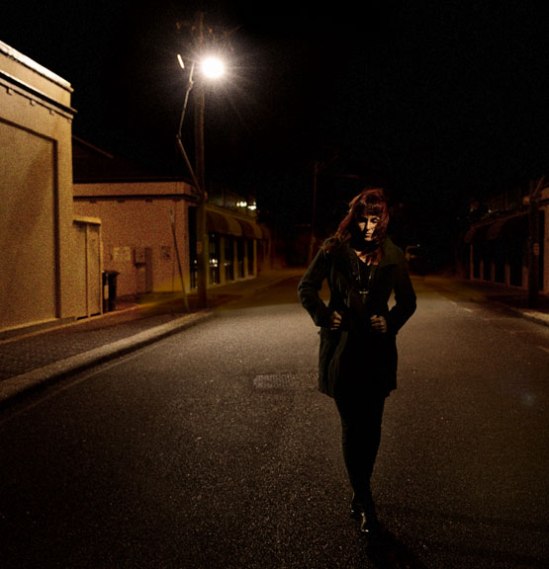 Ruby Boots’ sound will fit easily into the ears and hearts of Americana lovers, and even country fans who want to listen to lyrics that are honest, sometimes even blunt, but beautifully sung. This country siren from down under translates hitting the grind, both emotionally and physically into music. You will not hear too much rasp in Ruby’s voice, but rather a sweet and clean timbre. Her style of storytelling will make you wonder, what is going on in the country down under, and can we have some of that sound up here. Lucky for these listeners, Ruby is not slowing down anytime soon.
Ruby Boots’ sound will fit easily into the ears and hearts of Americana lovers, and even country fans who want to listen to lyrics that are honest, sometimes even blunt, but beautifully sung. This country siren from down under translates hitting the grind, both emotionally and physically into music. You will not hear too much rasp in Ruby’s voice, but rather a sweet and clean timbre. Her style of storytelling will make you wonder, what is going on in the country down under, and can we have some of that sound up here. Lucky for these listeners, Ruby is not slowing down anytime soon.
Until the end of March next year, Ruby and her band will tour Australia. In late September, she finished her tour in the United States.
“I was hoping to ride the wave for at least a year because you put all that work into an album, and then you hope that creates opportunities on the road. I want to be on the road and play for people. I can’t say too much in detail, but I will get back here in April and May, touring.”
*Photos published with permission
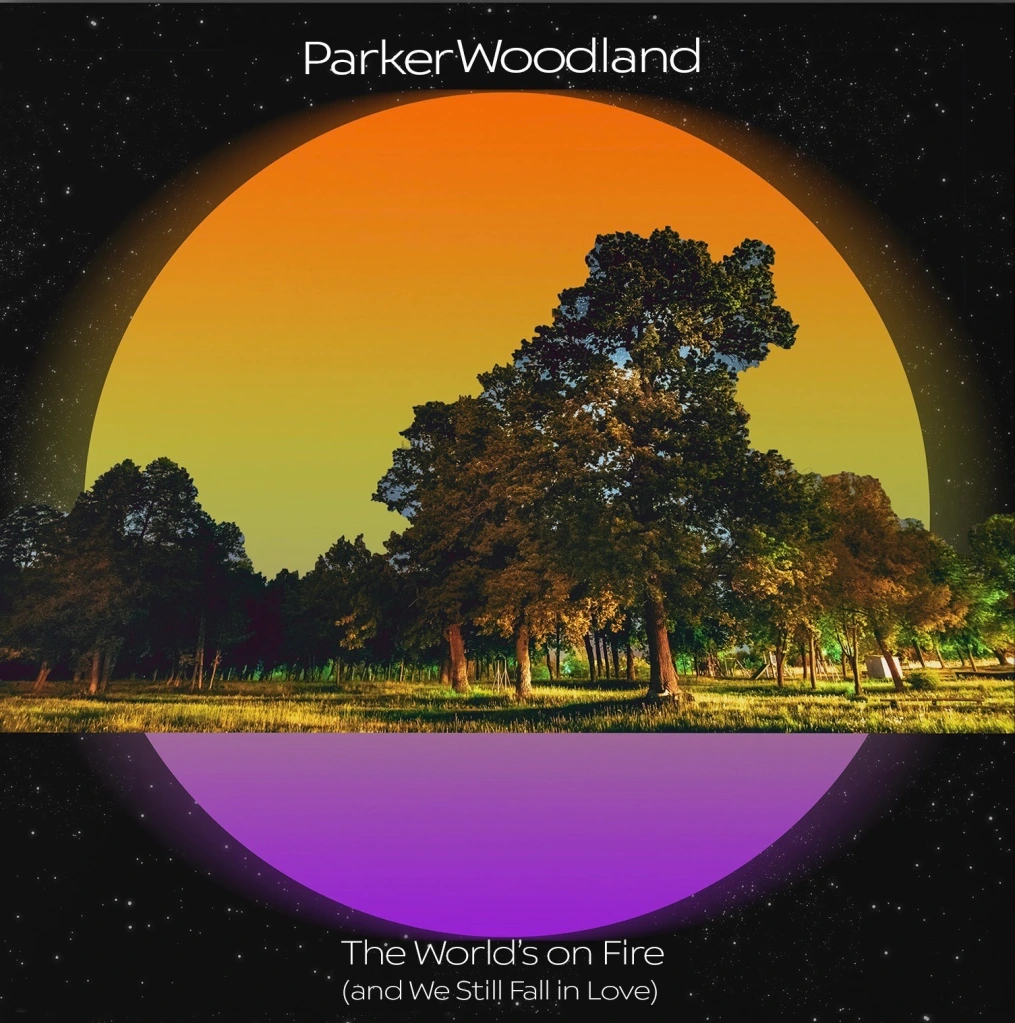

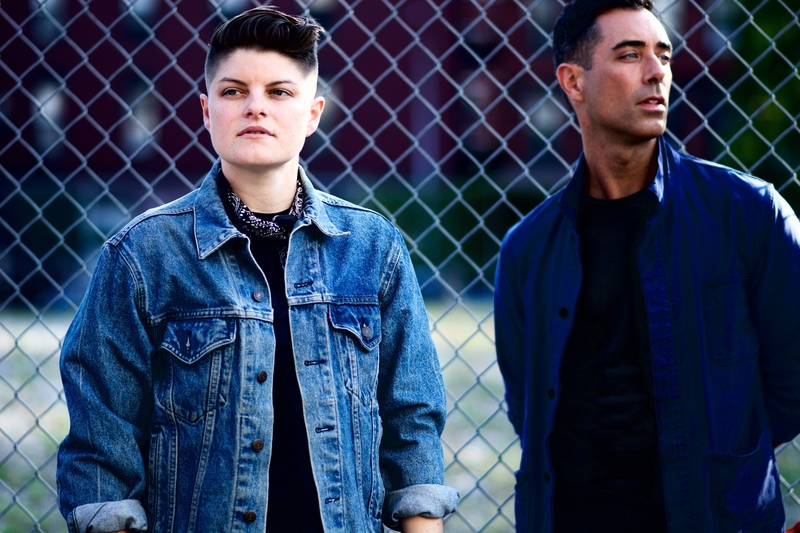

 In the track “Memes are stupid” the godfather of Nerdcore hip-hop, Mc Frontalot, raps Just another echo of an image that you’ve seen/in another permutation on that same rectangle screen/just a little more obscene or droll, according to your self-expression/ And still it’s dumb, affording you this hellish lesson… (Hess and Martinjack, 2019). This song opens his brand new record Net Split, which officially releases March 8th, 2019. Why should you give this record a listen? Let me explain in my interview with MC Frontalot right here on Music Historian.
In the track “Memes are stupid” the godfather of Nerdcore hip-hop, Mc Frontalot, raps Just another echo of an image that you’ve seen/in another permutation on that same rectangle screen/just a little more obscene or droll, according to your self-expression/ And still it’s dumb, affording you this hellish lesson… (Hess and Martinjack, 2019). This song opens his brand new record Net Split, which officially releases March 8th, 2019. Why should you give this record a listen? Let me explain in my interview with MC Frontalot right here on Music Historian.
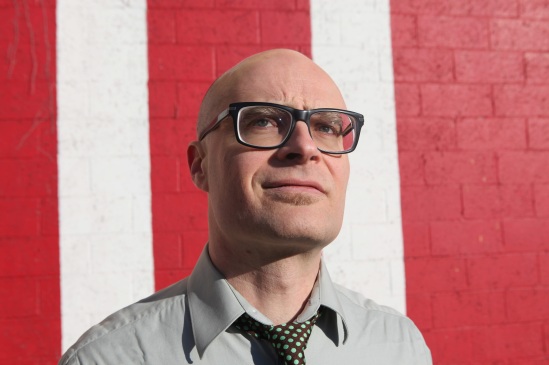 “I was introduced to that possibility with the site “Song Fight” which I was involved with a lot from 2000 all the way to 2005. Much of the early Frontalot stuff that got reworked into the first album was from song fights originally. It is a songwriting and production competition.
“I was introduced to that possibility with the site “Song Fight” which I was involved with a lot from 2000 all the way to 2005. Much of the early Frontalot stuff that got reworked into the first album was from song fights originally. It is a songwriting and production competition.
 “I wanted the soul-crushing rawness I was feeling to come through the music. Although there were [many] elements that inspired the songs, it began to focus on one thing: my break up. It was a rough recording process. Often times, I would unleash so much emotion that the sessions [resulted] in tears. It’s the most naked I have ever been as an artist. I exorcized a lot during the making of Caollaidhe.”
“I wanted the soul-crushing rawness I was feeling to come through the music. Although there were [many] elements that inspired the songs, it began to focus on one thing: my break up. It was a rough recording process. Often times, I would unleash so much emotion that the sessions [resulted] in tears. It’s the most naked I have ever been as an artist. I exorcized a lot during the making of Caollaidhe.”









 I interviewed Aaron in 2014, just weeks before the New Zealand-native indietronica group would perform at The Governor’s Ball Music Festival. I had contacted about ten talent management organizations for interviews with some of the artists attending the festival. CRS Management, who at the time managed The Naked and Famous, was the only talent group that expressed any interest. The effort CRS put in to coordinate an interview between Aaron and I was worth the while.
I interviewed Aaron in 2014, just weeks before the New Zealand-native indietronica group would perform at The Governor’s Ball Music Festival. I had contacted about ten talent management organizations for interviews with some of the artists attending the festival. CRS Management, who at the time managed The Naked and Famous, was the only talent group that expressed any interest. The effort CRS put in to coordinate an interview between Aaron and I was worth the while. The guest blogger and author of this post, Gary Reese, contributes postings, photos, videos, and interviews about musicians, including those who have appeared on “The Voice.” The “Holly Henry Fan Thread” on Idolforums and the “Holly Henry Fan Page” on The Voice Forums have received several page views. These pages have given Holly Henry the “third most viewed fan discussions of any contestant who as competed on “The Voice.”” I am happy to say that in 2015, Gary’s guest blog was the fourth most viewed article on Music Historian.
The guest blogger and author of this post, Gary Reese, contributes postings, photos, videos, and interviews about musicians, including those who have appeared on “The Voice.” The “Holly Henry Fan Thread” on Idolforums and the “Holly Henry Fan Page” on The Voice Forums have received several page views. These pages have given Holly Henry the “third most viewed fan discussions of any contestant who as competed on “The Voice.”” I am happy to say that in 2015, Gary’s guest blog was the fourth most viewed article on Music Historian.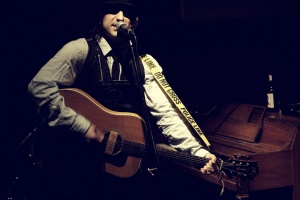 My interview with George Mihalopoulos, also known by his stage name, Gypsy George, had opened doors to several themes: entrepreneurship; creativity in today’s music business; and being bicultural in America. I initially learned about this artist while researching the music roster for The Northside Festival. His name first grabbed my attention. When I asked the American-Greek artist how he decided to choose his stage name, and call his band – The Open Road Love Affair – I knew I was an for an interesting story. According to the numbers generated by the readership, I might have been on to something.
My interview with George Mihalopoulos, also known by his stage name, Gypsy George, had opened doors to several themes: entrepreneurship; creativity in today’s music business; and being bicultural in America. I initially learned about this artist while researching the music roster for The Northside Festival. His name first grabbed my attention. When I asked the American-Greek artist how he decided to choose his stage name, and call his band – The Open Road Love Affair – I knew I was an for an interesting story. According to the numbers generated by the readership, I might have been on to something. Throughout his career as a professional slide-guitar player, Arlen performed on television, taught famous performers, and even acted as a director for a popular film. However; he never strayed away from his life as an artist and a teacher. Arlen says that showing an artist’s passion is what he is all about. Arlen’s stories of where he has been, his experiences and the lessons he has learned attracted many readers in 2015.
Throughout his career as a professional slide-guitar player, Arlen performed on television, taught famous performers, and even acted as a director for a popular film. However; he never strayed away from his life as an artist and a teacher. Arlen says that showing an artist’s passion is what he is all about. Arlen’s stories of where he has been, his experiences and the lessons he has learned attracted many readers in 2015. When I interviewed Ben McKee in 2012 for a story on Music Historian, I never imagined this story would attract so many readers, nor would I believe that someone would cite my article in their work! I continue to feel so grateful for this opportunity. Also, I feel humbled that so many readers continue to enjoy this post.
When I interviewed Ben McKee in 2012 for a story on Music Historian, I never imagined this story would attract so many readers, nor would I believe that someone would cite my article in their work! I continue to feel so grateful for this opportunity. Also, I feel humbled that so many readers continue to enjoy this post. Although I learned about
Although I learned about 





